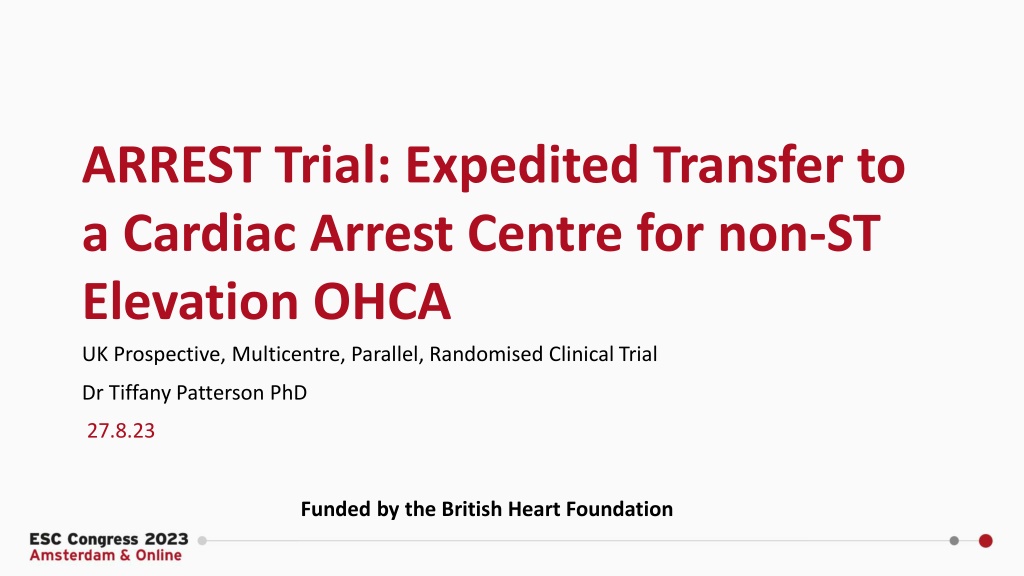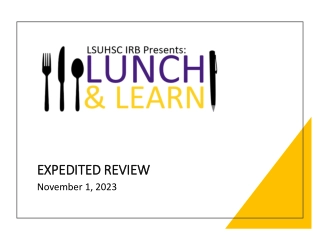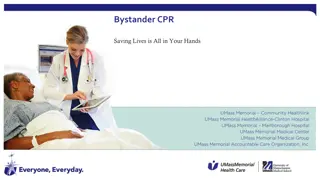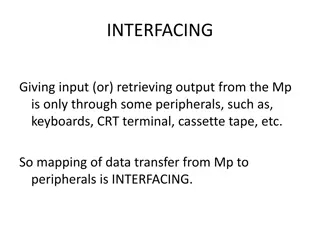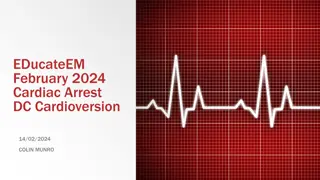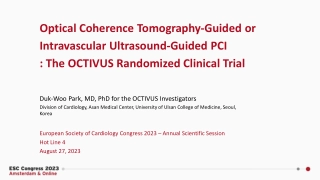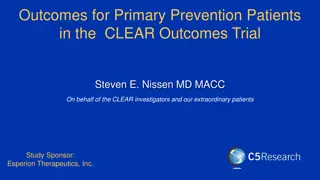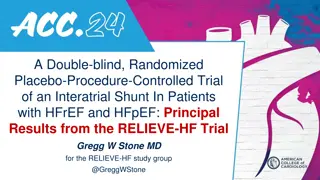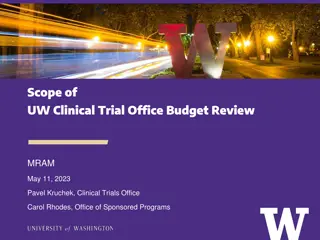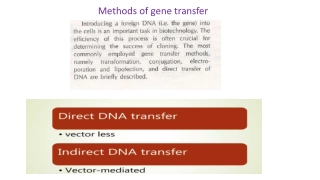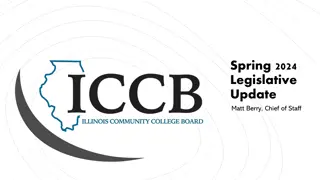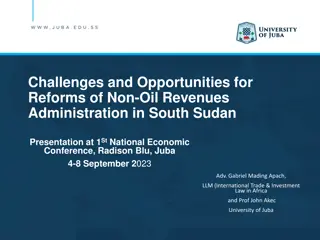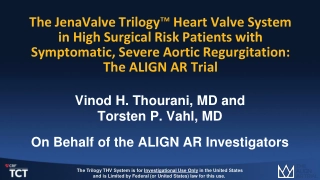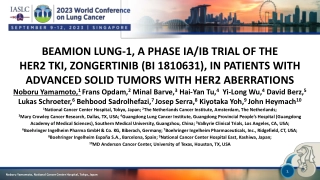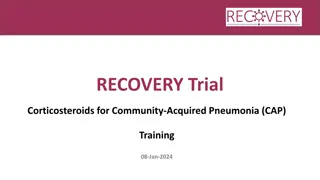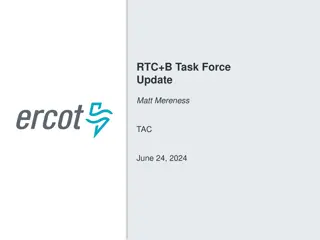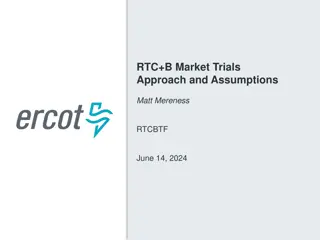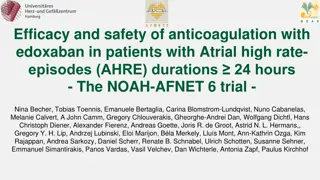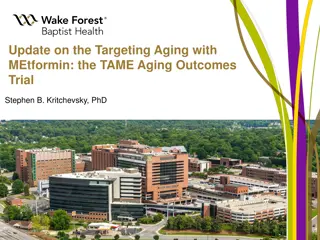ARREST Trial: Expedited Transfer for Non-ST Elevation OHCA
This prospective, multicentre, randomised clinical trial led by Dr. Tiffany Patterson aims to determine whether direct delivery to a cardiac arrest centre following non-ST elevation out-of-hospital cardiac arrest reduces deaths compared to delivery to the nearest emergency department. Funded by the British Heart Foundation, the trial involves coordination by King's College London and the London School of Hygiene & Tropical Medicine Clinical Trials Unit, in partnership with the London Ambulance Service. The study includes specific methods for trial conduct, inclusion/exclusion criteria, and endpoints/outcomes related to mortality, neurological outcomes, and quality of life measures.
Download Presentation
Please find below an Image/Link to download the presentation.
The content on the website is provided AS IS for your information and personal use only. It may not be sold, licensed, or shared on other websites without obtaining consent from the author. Download presentation by click this link. If you encounter any issues during the download, it is possible that the publisher has removed the file from their server.
Presentation Transcript
ARREST Trial: Expedited Transfer to a Cardiac Arrest Centre for non-ST Elevation OHCA UK Prospective, Multicentre, Parallel, Randomised Clinical Trial Dr Tiffany Patterson PhD 27.8.23 Funded by the British Heart Foundation
Background Marked regional variations exist in cardiac arrest survival Due to resources, infrastructure and personnel Current practice is to deliver patients to the nearest hospital Post arrest care may be best delivered in a specialist centre Supported by registry data International Liaison Committee on Resuscitation has called for a trial
Aim We aimed to determine if delivery direct to a catheter lab in a cardiac arrest centre following non-ST elevation out- of-hospital cardiac arrest (OHCA) arrest reduces deaths compared with delivery to the nearest emergency department
Trial Coordination Funding: British Heart Foundation Sponsor: King s College London Trial management and coordination: London School of Hygiene &Tropical Medicine Clinical Trials Unit London Ambulance Service
Methods Trial Conduct London Ambulance Service 24 hours a day, 7 days per week All 35 acute London hospitals 28 district general hospitals with emergency departments 7 designated cardiac arrest centres Enrolment London Ambulance Service paramedics Pre-hospital following resuscitated OHCA Patients randomised 1:1 Cardiac catheter lab in cardiac arrest centre Nearest emergency department
Inclusion and Exclusion Criteria Inclusion: Adult patients with resuscitated cardiac arrest Exclusion: ST-elevation myocardial infarction (heart attack) Presumed non-cardiac cause Pregnancy Do not attempt resuscitation order
Endpoints and Outcomes Primary endpoint: 30-day all cause mortality Secondary endpoints: 3-month all cause mortality Neurological outcome at discharge and 3 months EQ 5D 5L score (quality of life outcome)
Sample size Non-trial data suggest 30% increased survival with delivery to a cardiac arrest centre A sample size of 860 patients (430 in each group) would be needed to show a 10% reduction in death from 60% to 50%
Enrolment Randomisation from Jan 15, 2018 to Dec 1, 2022
Cardiac Arrest Characteristics Cardiac arrest centre group Standard care group Cardiac Cause 63% 60% Coronary 42% 38% Arrhythmia 33% 33% Cardiomyopathy 17% 19%
Conclusions In adult patients without ST elevation, transfer direct to a cardiac arrest centre following resuscitated out-of-hospital cardiac arrest in the community did not reduce deaths at 30 days. There was no difference in deaths at 3 months There was no difference in neurological outcome
Online: The Lancet We would like to acknowledge patients and their families, the Trial Steering Committee and the Data Safety Monitoring Committee
